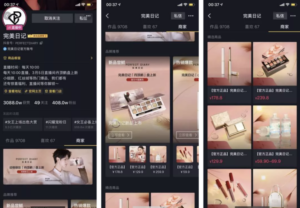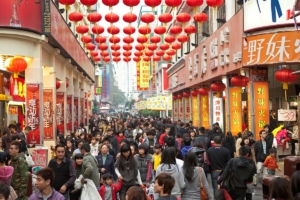Market Updates
The latest headlines that matter to your business.

Douyin Offers Flagship Stores For Brands
Douyin continues to build-out its e-commerce capabilities by launching flagship stores for brand accounts. The feature, made available on March 29, includes a campaign banner, brand recommendations, vouchers, product recommendations, and offline store information.

China Includes Physical Education In Exams
China recently announced that sports are set to become a core part of school exams.

China’s Authorities Consider Scrapping Birth Limits
China’s top population control authority may be moving toward loosening birth restrictions imposed under the country’s current two-child policy.

CNY Spending Trends Upwards
Chinese consumers spent about 821 billion yuan (US$127 billion) on shopping and dining during this year’s Spring Festival holiday, an increase from 2020 but still below the amount in 2019, which was over 1 trillion yuan, according to government data.

CNY Dinners Use More Prepared Food
Data released by the JD Big Data Research Institute on Feb. 9 indicates, sales of prepared versions of Chinese New Year dinner must-haves are significantly higher than before. Sales of a one-person serving of the traditional delicacy Buddha Jumps over the Wall have increased four times. Some consumers have gone all out – sales of set meals of auspicious CNY dishes are up 3.5 times.

China’s top 30 mobile game publishers see revenue jump in January
The top 30 Chinese mobile game publishers reported a surge in revenue last month thanks to their overseas market expansion. These game developers raked in over $2.3 billion in worldwide revenues in January, a surge of 47.3 percent year on year, according to Sensor Tower, a mobile app data analysis firm.

Multinationals tap into China’s booming esports market
A growing number of multinational companies are foraying into China’s esports sector, vying for a piece of the booming market topping the world with more than 20 billion US dollars in revenue and hundreds of millions of avid players. Global furniture retail giant IKEA on Friday crossed into the gaming world by debuting its home furnishings collection designed for esports gamers, including tables, chairs, storage boxes, and other accessories, in Shanghai.

China’s Burned Out Millenials Go Back To Nature
Over recent years, young Chinese have become increasingly disillusioned with the gruelling work schedules and cutthroat competition that come with living in the country’s major cities, leading many to embrace a range of alternative lifestyles — from extreme saving, to hermit culture and alternative food networks.

Douyin Offers Flagship Stores For Brands
Douyin continues to build-out its e-commerce capabilities by launching flagship stores for brand accounts. The feature, made available on March 29, includes a campaign banner, brand recommendations, vouchers, product recommendations, and offline store information.

China Includes Physical Education In Exams
China recently announced that sports are set to become a core part of school exams.

China’s Authorities Consider Scrapping Birth Limits
China’s top population control authority may be moving toward loosening birth restrictions imposed under the country’s current two-child policy.

CNY Spending Trends Upwards
Chinese consumers spent about 821 billion yuan (US$127 billion) on shopping and dining during this year’s Spring Festival holiday, an increase from 2020 but still below the amount in 2019, which was over 1 trillion yuan, according to government data.

CNY Dinners Use More Prepared Food
Data released by the JD Big Data Research Institute on Feb. 9 indicates, sales of prepared versions of Chinese New Year dinner must-haves are significantly higher than before. Sales of a one-person serving of the traditional delicacy Buddha Jumps over the Wall have increased four times. Some consumers have gone all out – sales of set meals of auspicious CNY dishes are up 3.5 times.

China’s top 30 mobile game publishers see revenue jump in January
The top 30 Chinese mobile game publishers reported a surge in revenue last month thanks to their overseas market expansion. These game developers raked in over $2.3 billion in worldwide revenues in January, a surge of 47.3 percent year on year, according to Sensor Tower, a mobile app data analysis firm.

Multinationals tap into China’s booming esports market
A growing number of multinational companies are foraying into China’s esports sector, vying for a piece of the booming market topping the world with more than 20 billion US dollars in revenue and hundreds of millions of avid players. Global furniture retail giant IKEA on Friday crossed into the gaming world by debuting its home furnishings collection designed for esports gamers, including tables, chairs, storage boxes, and other accessories, in Shanghai.

China’s Burned Out Millenials Go Back To Nature
Over recent years, young Chinese have become increasingly disillusioned with the gruelling work schedules and cutthroat competition that come with living in the country’s major cities, leading many to embrace a range of alternative lifestyles — from extreme saving, to hermit culture and alternative food networks.
Would you like to stay up to date?
Sign up to our newsletter if you want a monthly digest of the latest Chinese Digital Marketing news!
